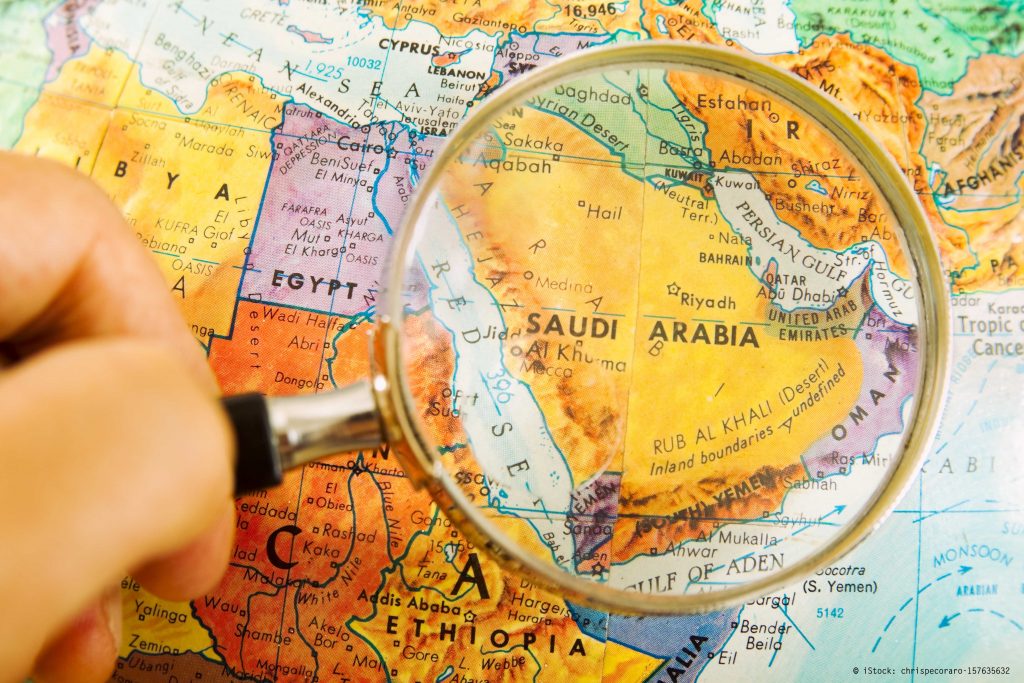12 December 2017
Sala Belvedere, Villa Schifanoia – 15.00-17.00
The recent internal political developments in Saudi Arabia mark a new era, not only for Saudi Arabia, but also for the whole region. The foreign policy of the new Saudi leadership has had tremendous consequences on many countries in the region, as is the case with the recent crisis in Lebanon and the ongoing war in Yemen. This roundtable seeks to understand this shift in Saudi Arabia’s foreign policy and how it might influence the region, in particular the political crisis in Lebanon, as well as the European and American responses.
Click here to download the MEMO.
MEMO / The main characteristics of Mohammad bin Salman’s political project
– The Rise to power of Crown Prince Mohammad bin Salman (MBS) since 2015 has had internal and external repercussions. Internally, new political reforms were introduced: Women were allowed to vote and run for office in local elections; the power of religious police has been limited; the driving ban on women was lifted. Externally, the crown prince has adopted a more confrontational foreign policy (e.g. Yemen conflict; diplomatic crisis with Qatar).
– MBS’s rise in power represents a shift in the Saudi internal decision-making system. While it used to be based on the consensus within the royal family, MBS has been adopting a unilateral approach, even if it leads to clashes with other members of the royal family as with the recent case in the anti-corruption campaign.
– MBS is seeking to appeal to the people, mainly the youth, as a liberal reformer. Either through his liberal reforms or the recent anti-corruption campaign, the crown prince tries to appear as the man of the people. It also seems that this serves his image in the West as a liberal reformer countering Islamic extremism, which goes hand in hand with the escalation against Qatar and the campaign against Brotherhood-affiliated scholars in the Kingdom.
Key factors shaping the future of the new political project in Saudi Arabia (SA)
- Economic performance will have an important impact on MBS’s project. From an economic perspective, MBS is facing serious challenges. He is changing the economic rules by lifting subsidies and adopting taxes. A main challenge remains though: would his economic measures guarantee economic growth and the creation of jobs? Oil production is a capital-intensive business, which, for SA meant a very high level of unemployment, especially among youth. A very young population that is becoming increasingly educated paired with a high level of unemployment represent a challenging situation for MBS. Low oil prices are an immediate impediment to the sustenance of rentier state-society relations, deemed necessary for political stability and the Saudi family hegemony.
- The ability to create a supportive popular base: while it seems that MBS is currently the main political player, the losers of MBS’s project, either from the religious, political and business elites, are expected to resist his policies. On the other hand, he is trying to appeal to other sectors that are not yet organised, as is the case with the youth.
- There are two main game changers that would directly affect the political situation in SA: First, the possibility of reaching a peace agreement between the Israelis and the Palestinians, and second, the future of the Iran Nuclear deal. On the one hand, MBS seeks to strengthen his international legitimacy by leading an Arab-Israeli rapprochement. However, this does not look promising with the recent decision by Trump to move the US embassy to Jerusalem, causing much embarrassment to the US allies. On the other hand, the future of the Iran Nuclear deal is expected to have an impact on the current confrontation between SA and Iran. The outcome of the regional struggle between SA and Iran in countries like Yemen, Syria and Lebanon is likely to have a huge impact on the new political regime in SA.
Based on these elements, the rise of new Saudi leadership together with the Iranian strategy to strengthen its presence in different areas in the Middle East are likely to lead to further regional instability. Hence there is a need for policies to freeze and de-escalate the current confrontation between Iran and Saudi Arabia, allowing for a platform upon which Iran, SA and other regional powers can negotiate.
- Turkey and Egypt (which have common interests with both Iran in fighting Islamic radicalism and keeping the integrity of Iraq and Syria, and strong economic ties with SA), plus the EU (thanks to the role played in the Iran nuclear agreement) and Russia could mediate between SA and Iran in order to find an arrangement to de-escalate the situation. The only spoiler of this agreement could be Israel, but the US could put pressure on it.
- In order to balance the concerns of SA and Israel over the Iranian nuclear deal, it may be useful to open a parallel track to discuss other issues within a larger regional agreement.




